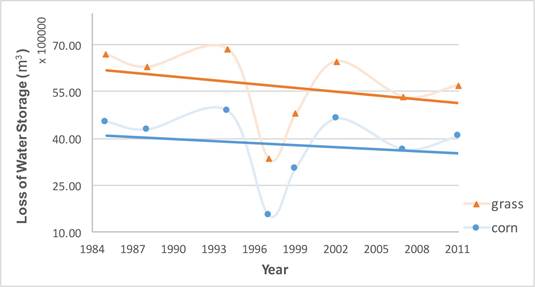Effects of Aggregate Extraction on Water Storage in the Pepin Creek Watershed, British Columbia, Canada
Yining (Rachel) Wang, MLWS 2016
Aggregate extraction in the Lower Fraser Valley of British Columbia, Canada, has affected the soil water storage of the Pepin Creek watershed. Although local government has set regulations for aggregate extraction projects to avoid negative environmental impacts, the gradual loss of soil materials and associated changes in vegetative cover has led to an alteration of the water balance within the watershed, which may affect surface or groundwater levels, and aquatic habitats. The study assessed the effects of aggregate extraction on the water storage of the Pepin Creek watershed and estimated that 25% of the surface area of the Canadian portion of the watershed has been affected by aggregate mining with an estimated loss of water storage of 10%. Evapotranspiration has decreased as a result of the removal of the vegetative cover. Precipitation has remained relatively constant over the study period but the annual discharge measured at Pepin Creek has decreased. Recommendations for enhancing environmental monitoring to better measure and understand ecological functions of the watershed during aggregate extraction are provided.
View article in Scientific Researcher – An Academic Publisher
